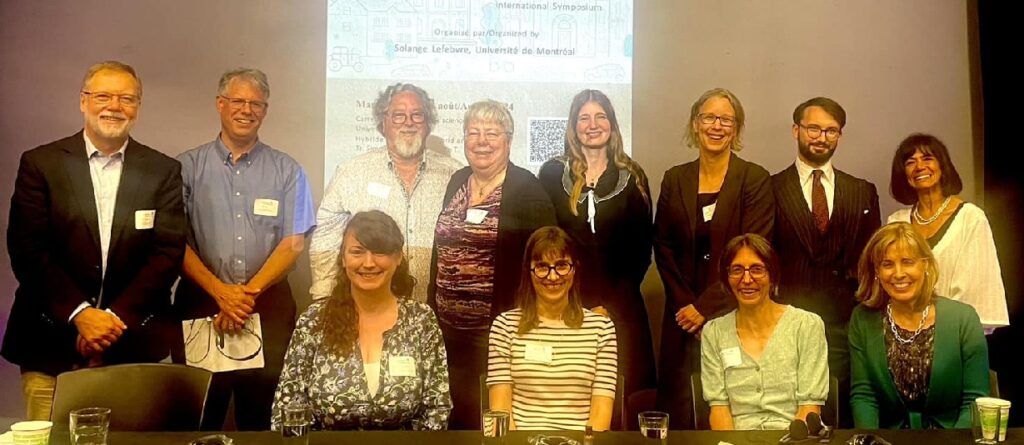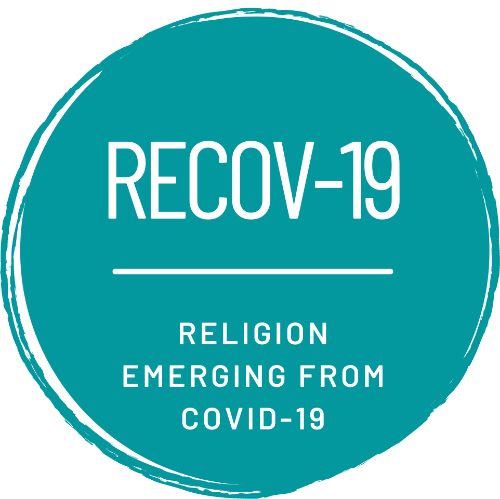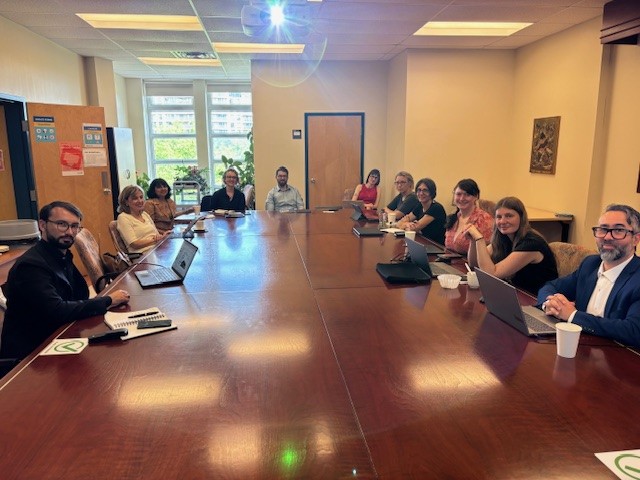The Recov-19 team staged a symposium on religion and Covid-19 at the University of Montreal, August 13, 2024. Organized by Solange Lefebvre (coinvestigator), Mathieu Colin and Karel Leyva (Research professionals), from the Research Chair Cultural and Religious Diversity, the event provided a platform for the international team to share their findings with a diverse audience that included university professors, doctoral students, journalists, healthcare professionals, and religious leaders. The symposium aimed to foster dialogue between Recov-19 and secular and religious organizations, all of which had been confronted and transformed by the Covid-19 pandemic.

The morning session allowed the Recov-19 team to present their findings to the multidisciplinary, multifaith audience gathered at the Carrefour des arts et des sciences (Arts and Sciences Agora) of the University of Montreal. Gladys Ganiel (Queen’s, Northern Ireland), Solange Lefebvre and Kerstin Radde-Antweiler (Bremen, Germany) presented the project’s scope, methodology, and international comparative perspectives. This set the stage for national results from Canada, Germany, Ireland, and Northern Ireland, which were presented by Mathieu Colin, Amrei Sander and Caoimhe Ní Dhónaill. This was followed by comparative analyses of religious discourses on science, health, and the pursuit of the common good during the pandemic, as well as the transformation of religious practices during and after the lockdowns, particularly the role of digital media and live-streaming rituals (G. Ganiel, S. Lefebvre, M. Kolodziejska, and K. Radde-Antweiler).
Giving a Voice to Civil Society
In the afternoon, Canadian journalists, health officials, and religious leaders took center stage in the symposium’s reflections. They were invited to share their thoughts on the pandemic and react to the findings presented by the Recov-19 team earlier in the day.
The first panel featured high profile journalists who had been at the forefront of pandemic coverage. André Picard, health columnist at The Globe and Mail, Luce Julien, news director of French-language services at CBC-Radio-Canada, and Éric-Pierre Champagne, journalist at La Presse and president of the Fédération professionnelle des journalistes du Québec, discussed the challenges of reporting on religion during the pandemic. When religion was covered, it often focused on resistance to vaccination and public health measures, as well as conspiracy theories in religious circles, despite the fact that most faith organizations complied with the rules. They also highlighted the personal and professional difficulties they faced during the crisis, such as caring for elderly parents while covering the pandemic and dealing with death threats from conspiracy theorists.
A second panel of health professionals and community workers shared their experiences of reaching out to marginalized groups, particularly socially isolated immigrant women, many of whom belong to racialized communities and minority religions, especially Islam. These groups are often mistrustful of state institutions and subject to systemic racism. Professor Bilkis Vissandjee from the University of Montreal’s Faculty of Nursing discussed her efforts to encourage these women and their families to get vaccinated and wear masks. Community worker Yasmina Chouakri offered insights into building trust and solidarity with these vulnerable populations.
Religious leaders also had a platform to share their perspectives on the pandemic and church-state relations. Many expressed frustrations over the federal and provincial governments’ lack of consideration for religious organizations, despite the essential role they played in ensuring compliance with health measures, even in the face of resistance from within their own communities. Evangelical pastor Rick Hiemstra noted that while places of worship were closed, liquor and cannabis stores remained open, which sent a disrespectful message to faith communities. He also raised questions about the nature of secularism in Canada, pointing out that while governments ignored the legitimacy of religious communities, they still relied on them to communicate health information to their members. Where, he asked, does the separation of church and state begin, and where does it end?
Pastor Peter Noteboom, Secretary of the Canadian Council of Churches, emphasized the positive impact of the pandemic on fostering an ecumenical and interreligious “common language,” which promoted solidarity among Canada’s diverse faith communities. Monsignor Pierre Murray, General Secretary of Quebec’s Assembly of Catholic Bishops, spoke about the intense interfaith cooperation that occurred during the pandemic, even as religious groups faced a secularist government that quickly shut down all places of worship. For the historically powerful Roman Catholic Church, the pandemic represented a “Paschal moment,” as Quebec Catholics had to come to terms with the fact that they were no longer the dominant religious institution but merely one among many. This, he suggested, might be an opportunity for renewal within the Catholic Church in Quebec.
At the close of the symposium, one was left to ponder whether Covid-19 might have been an opportunity for institutions—be they religious, governmental, or scientific—whose historical role has been to convey meaning and authority. In Western societies, these institutions increasingly face public mistrust or outright opposition. The pandemic could be seen as a turning point, a chance for these bodies to address the very need for dialogue and the pursuit of the common good.
Frédéric Barriault, Communication Agent, Research Chair Cultural and Religious Diversity, University of Montreal

